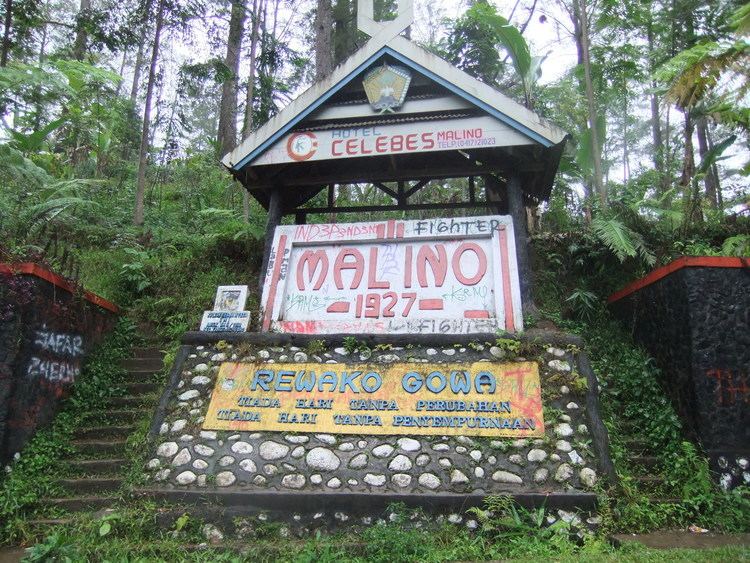Soon to come
Twenty five years ago we often went to Malino for a weekend, a Hash, or when we had visitors. Malino is a small town in the mountains around 70km east of Makassar. Temperatures are moderate (10-26 degrees Celsius) and you can find lots of pine trees in the surrounding forests. There are several waterfalls and a tea plantation close by. The drive from Makassar took around 2 hours. In Makassar the roads had improved a lot, so we got through there quickly, but once outside the town we slowed down because the roads became narrow and had a lot of slow vehicles.
Hotel
We stayed in the Celebes Hotel, where we also stayed during an ATIAMI project workshop when I took over the project, and then again with my parents when they visited us. A new building was added since then, in which our bedrooms were located, but otherwise the hotel had not changed very much.
After a relaxed lunch (ayam kampung goreng) I split from the group and walked uphill towards town, trying to remember the place. Some memories came back, mostly about running a Hash here and visiting the water falls with our kids and with my parents. I don’t have many memories about the place.
After a longer walk I rejoined the group at a coffee shop that offered Coffee Luwag.
“Cut the Crap” – Coffee Luwak
The first paragraph on the topic in Wikipedia says it all: “Kopi luwak, also known as civet coffee, is a coffee that consists of partially digested coffee cherries, which have been eaten and defecated by the Asian Palm Civet (Paradoxurus hermaphroditus). The cherries are fermented as they pass through a civet’s intestines, and after being defecated with other fecal matter, they are collected. Asian Palm Civets are increasingly caught in the wild and traded for this purpose.” I refuse to drink Coffee Luwak for two reasons:
- I don’t really find the idea attractive to eat or dring something that had been defecated by some other creature.
- Formerly the defecated beans were collected in the wild, but increasingly the Asian Palm Civets are caught and kept in cages under often very bad conditions to get higher yields and maximize profits.
It is basically “Cruelty in a cup.”
Unfortunately the coffee served in the shop came from civets in capture. They were were kept in the backyard of the coffee shop.
Rather than good taste of coffee, this visit left a really bad taste for me. One would assume that humans learn to live more sustainable and more animal friendly over time, instead the abuse seems to increase.
Waterfall
The next day we went to a waterfall that was passed by a MHHH run 25 years ago.
